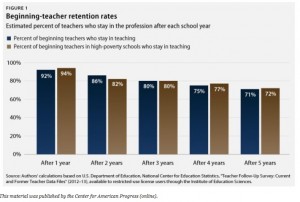Dear Commons Community,
New York City voters across racial lines disapprove of recent protests in which police officers turned their backs on Mayor Bill de Blasio at the funeral of two police officers slain in the line of duty, a new Quinnipiac poll says.
Black, white and Hispanic voters disapprove of the decision by police officers to turn their backs 69 percent to 27 percent, the poll says.
New York voters of all races also disapprove of comments by police union leaders who said de Blasio had “blood on his hands” after two officers were shot and killed in Brooklyn while sitting in their patrol car in December.
As reported in the New York Times:
“By overwhelming margins, New York City voters objected to the back-turning protests and work slowdown that have roiled the Police Department, an auspicious turn for Mayor Bill de Blasio as he seeks to end weeks of open tensions between officers and City Hall.
A poll released on Thursday revealed deep dismay — across racial, gender and geographic lines — over the tactics and incendiary statements of protesting officers, and a desire to discipline those who deliberately made fewer arrests.
For Mr. de Blasio, who had initially appeared beleaguered as he confronted a rebellion within law enforcement, the poll offers vindication of his strategy of waiting out police protests and refusing to apologize for his efforts at reform.
In their zeal to show the mayor he had neglected them, leaders of police unions appear to have overplayed their hand, giving Mr. de Blasio a key advantage by alienating a public accustomed to years without such explosive tensions in the ranks.
The poll, conducted by Quinnipiac University, comes as Patrick J. Lynch, the president of the Patrolmen’s Benevolent Association, faces growing challenges from members who believe he has gone too far in his attacks on City Hall.
And it comes as Mr. de Blasio, a Democrat, has sought to address deep-seated tensions with the Police Department, using his strongest language to date in acknowledging rank-and-file concerns and denouncing as “quite sick” the words of protesters who called for antipolice violence.
Administration officials are hopeful the worst of the uproar is over, although Mr. de Blasio has significant hurdles ahead. A majority of city voters disapprove of the way he is handling the Police Department. Seventy-seven percent of voters said relations between the mayor and the police were generally bad.
And the city is split on who is more to blame for the conflict, the mayor or the police — with stark divides along racial lines. Among white people, 61 percent blame Mr. de Blasio; among black people, only 16 percent do.
“The mayor isn’t out of the woods on this,” said David S. Birdsell, dean of the Baruch College School of Public Affairs. But he said the behavior of protesting police officers had been seen as offensive by the public they are expected to serve.”
This poll is timely and an important counterbalance to the daily campaigns by two New York City tabloids – The Daily News and the New York Post – that have been trying to sway public opinion against Mayor de Blasio on this issue.
Tony



